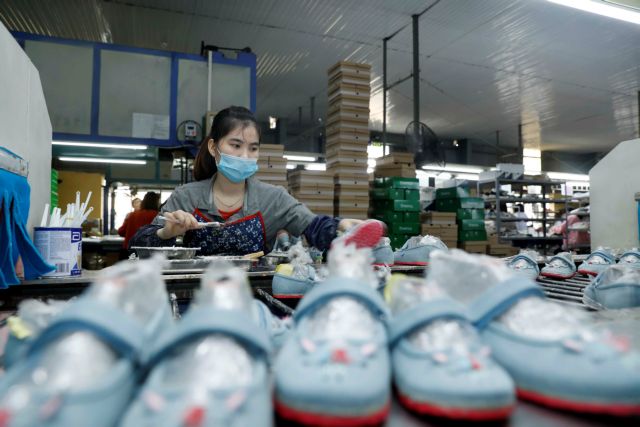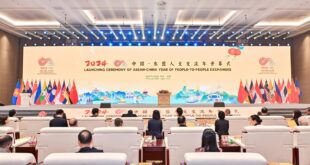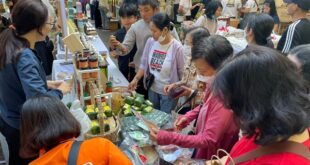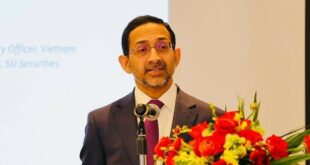
HÀ NỘI — The risk of high inflation and the rising price of assets have been put forward at a seminar to discuss how to support and revive the economy in the new normal, after the great impact of the COVID-19 pandemic.
The seminar, themed “Supporting and restoring the economy in the new normal”, was hosted by the Institute for Economic and Policy Research (VEPR) on Wednesday.
In his remarks at the event, Trần Toàn Thắng, Head of the National Center for Socio-Economic Information and Forecast, highlighted some of the risks threatening the recovery process of the economy, such as a resurgence of COVID-19 with new variants.
Thắng said inflation pressure is increasing strongly, noting that some important indicators, such as the Producer Price Index (PPI) and Raw Materials Price Index (RMPI), showed an increase in the production costs for the industrial sector.
Agricultural exports also suffered from other international competitors and the uncertainty from traditional markets. Participants cited the price increase in assets such as gold and property, meaning that the cash flow has not really gone into production.
Experts raised concerns about imported inflation risk and warned that Việt Nam needed to be wary of imported inflation, especially from rising global energy and commodities prices, urging attention to be paid to promoting exports and putting imports under control.
The Government should soon conduct the assessment of the cost-push inflation, especially the possibility of inflation continuing to rise in the next quarter this year, due to the impacts of PPI and Import Price Index (IPI). Measures should be taken to limit the impact on domestic consumers.
Participants also want the Government to consider continuously reducing excise tax and reschedule the increase in tariffs or fees in order to stabilise commodity prices.
Economist Nguyễn Đình Cung said that inflation pressure would mainly come from the supply and cost-push inflation because of the supply shortage and increase in demand while facing the disruption of supply chains causing high input costs.
Participants stressed that Việt Nam needed to control supply chains of raw materials and energy for local production, and maintain global supply chains while trying to avoid supply chain disruption. They noted that this was one of the great challenges facing Vietnamese businesses when ocean freight charges and container prices continue to rise driving local exporters into difficulties.
Experts made their suggestions that the Government needed to assist businesses in having access to loans and removing difficulties in logistics.
They noted that Government slashed the value-added tax (VAT) rate from 10 to 8 per cent in February this year – a move that cost the State budget VNĐ49.4 trillion (US$2.2 billion) but, along with other support, was expected to help boost the pandemic-hit economy.
Also, at the seminar, economic experts said that the reduction of the environmental protection tax rate of VNĐ2,000 per litre was a good measure to help minimise pressure on domestic gasoline prices, caused by sharp increases in world oil prices. The reduction will help production and transport costs for local businesses.
Accelerating economic recovery
According to VERP’s report, in the remaining months of this year, many factors will positively support the economic recovery and growth, including reopening tourism activities from March 15 and recovery in air travel. High vaccination coverages also allow the Government to lift strict measures to prevent and control the pandemic.
In addition, Việt Nam’s jobs post COVID-19 have seen positive recovery trends, especially in HCM City and southern provinces which faced severe labour shortages during the fourth wave of the COVID-19 pandemic.
According to the report, a recovering labour market, along with monetary and fiscal stimulus measures of the Government, will help boost industrial growth at 9.5 per cent this year contributing 3.6 percentage points to the country’s GDP growth.
Economists also emphasised the disbursement of the VNĐ350 trillion (US$15.42 billion) economic recovery package – the largest in history, which aims to reboot the country’s economy after a long period of social and mobility restrictions due to the pandemic.
They said public investment would become an important part of the package with a high expectation to bring good effects and stimulate the economic growth quickly. However, the capital disbursement for public investment has not yet been well implemented due to existed problems relating to administrative procedures.
The Government needed to make breakthroughs in institutional reforms with a view to further improving the local business climate and creating fair competition by moving towards a free market economy, said experts. — – VnExpress News
- Reduce Hair Loss with PURA D’OR Gold Label Shampoo
- Castor Oil Has Made a “Huge” Difference With Hair and Brow Growth
- Excessive hair loss in men: Signs of illness that cannot be subjective
- Dịch Vụ SEO Website ở Los Angeles, CA: đưa trang web doanh nghiệp bạn lên top Google
- Nails Salon Sierra Madre
 VnExpress News The News Gateway of Vietnam
VnExpress News The News Gateway of Vietnam




